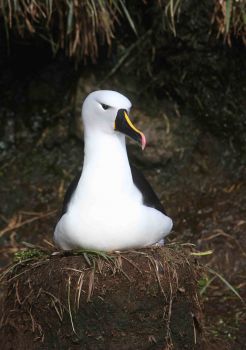At the Sixth Session of its Working Party on Ecosystems and Bycatch (WPEB) held last month the Indian Ocean Tuna Commission (IOTC) discussed simplifying its seabird bycatch mitigation measure (Resolution 10/06 On Reducing the Incidental Bycatch of Seabirds in Longline Fisheries) by removing two of the measures not considered proven by research to reduce seabird bycatch. The choice of measures would then be restricted to four (weighted branch lines; night setting with minimum deck lighting; bird-scaring (Tori) lines; and blue-dyed squid bait), of which a minimum of two measures had to used by longline vessels fishing south of 25°S.
In the event consensus was not achieved, with a small minority of scientists attending the meeting arguing that the resolution should be left unchanged, and that the two other mitigation measures currently listed (use of a line shooter and offal management) should be retained.
The scientists who expressed reservations were encouraged to present research results to the next meeting of the IOTC Scientific Committee in support of their positions. It was agreed that unless this was done, the advice to the Scientific Committee to revise the resolution would stand (click here for the report of WPEB-6).
The IOTC Scientific Committee meets next month in Victoria, Seychelles over 6-10 December (click here for the meeting agenda) where the matter is expected to be discussed when the WPEB report is presented to the meeting.

Visit this site next month to see whether or not the IOTC Scientific Committee recommends to the Commission that Resolution 10/06 be changed - as the majority of members of its Working Party on Ecosystems and Bycatch have proposed.
Click here for an earlier ACAP news item on the 2010 IOTC-WPEB-6 meeting.
The 2010 meetings of the IOTC WPEB and Scientific Committee are being attended by the Convenor of the ACAP Seabird Bycatch Working Group, Barry Baker.
John Cooper, ACAP Information Officer, 16 November 2010

 English
English  Français
Français  Español
Español